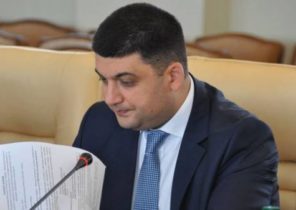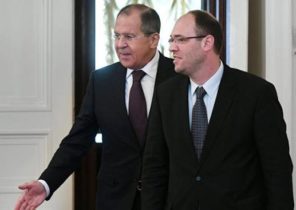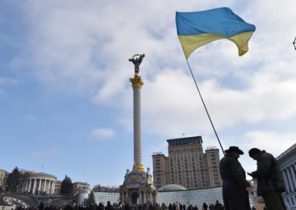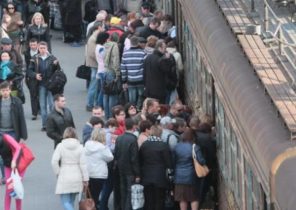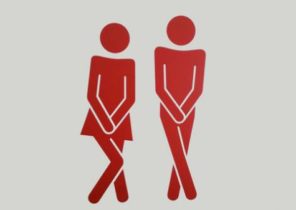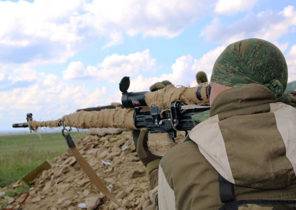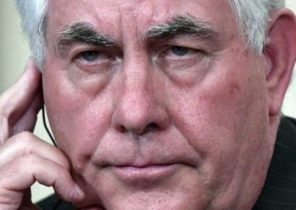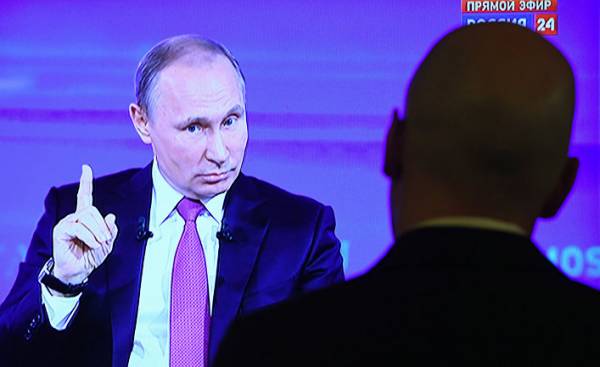
To paraphrase the famous phrase “the Truth,” Putin is Stalin today. Since Stalin’s death, nobody has been able to achieve such a durable and undeniable power over Russia. Anyone but Putin. However, tomorrow he may be remembered as the modern Brezhnev due to the rapid decline of the economy and public morale during the years of his governance. At the same time, like many previous Russian leaders, including Brezhnev, Stalin and Nicholas I — he tries to squeeze Russia into a straitjacket of repression and the imposition of the official line of thinking, which celebrates the autocracy and the Russian state nationalism.
Under Nicholas I, this system was called “official nationality”, in the last years of his reign, this system drove Russia during the ice age. During the reign of such despots as Alexander III, Stalin, and Brezhnev had experienced one of the worst stagnation since these rulers refused any reforms which might weaken their leadership. The results of this policy are well-known Russian historians and observers, they have special significance in this centenary of the 1917 revolution. Absolutely the same phenomenon is being observed today under Putin.
However, recent trends show that the pressure inside the Putin regime has been steadily increasing. Capacity and geographical coverage of anti-government demonstrations on June 12 and also Putin testify to the enormous frustration of the Kremlin regime among the most unpredictable category of citizens — young people. It is always and everywhere considered a dangerous sign for the despots. As well as the dissatisfaction of the intelligentsia and the middle class, the increasing number of strikes over the past few years, including the ongoing truckers ‘ strike and the growth of emigration and the increase of demographic, health and economic risks.
There is every reason to suspect that the situation will continue to deteriorate. Potentially, it can lead to a sudden shock, the reason for which will serve as an unexpected incident or crisis. This revolution may not turn into a revolution, but it will be a real shock to the system and will deny the government’s attempts to assure everyone that Russia’s internal Affairs in order.
Many analysts in the West and in Russia are challenging this formulation, even while recognizing the overall scale of the crisis. Usually they refer to public opinion polls, the ability of the Russians to endurance and suffering, lack of alternative leadership, the power of repression and the weakness of the opposition. All these factors should be taken into account. However, none of them seem to have failed to convince key audiences that the regime can afford to simply ignore the growing protests.
This key audience, of course, Vladimir Putin. The increasing intensity, ubiquity and coercivity of repressive activity strongly suggests that it feels like the earth is shaking under my feet. Perhaps one of the most striking examples of fear of the regime can be found in recent rulings on the subordination of the Russian army troops of the National guard, because this organization has a mission on the violent suppression of the riots. The national guard, the number of which is about 400,000 people, is reminiscent of the Praetorian guards of Ancient Rome, whose mission was the protection of the Emperor. The function of the national guard under the protection of Putin and his regime. This service exists along with the regular forces of the Ministry of internal Affairs, FSB, border, railway, regular army and hundreds of thousands of other paramilitaries.
Potential discipline of the regular army, National guard, according to observers, is unprecedented in Russian history. It underlines how much this regime is afraid of its own people and how he is ready to drown any protest in the blood. In other words, Putin is ready to wage war not only against Russia’s neighbors and potential members of NATO, he is also preparing to wage war against his own people. Putin and his entourage are not going to emulate Gorbachev and walk away without a fight. Instead they will protect their kleptocracy force. The emphasis on militarization inherent in these new decrees, and other forms of repression, the priority of defence spending, the reluctance to abandon the current economic structure, providing maximum rents for the elite — all this is a weighty proof that the regime does not believe its own legend about the prospects and stability.
In this respect, the determination of Putin in spite of everything continue to impose on Russia a regime surpasses even the idea of Brezhnev and his tsarist predecessors. Stalin, of course, continues to stand apart, making the analogy in the beginning of this article even more relevant. Historians write that the regime of Nicholas I was a mistake that Stalin’s rule was a disaster for the Soviet people. What’s the verdict historians will make of a potential king who has shown that he is willing to use extreme measures against its citizens? If the collapse of the Soviet Union was the main catastrophe of the twentieth century, how would describe what today looks like an increasingly inevitable collapse of Putinism?
